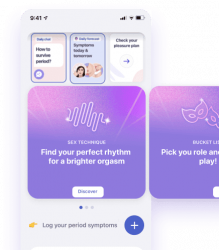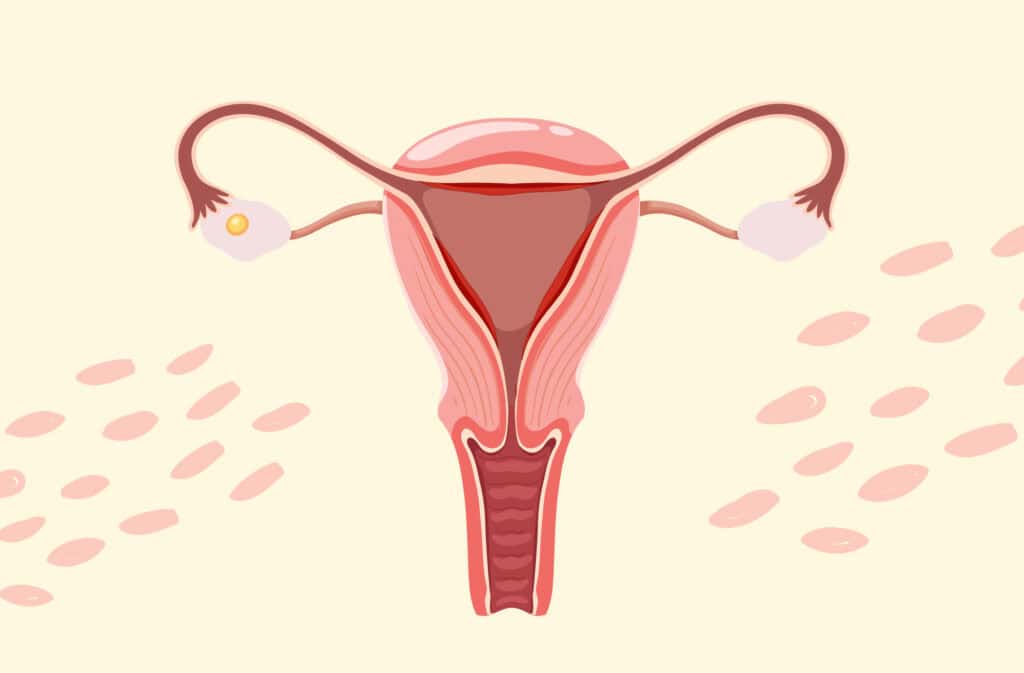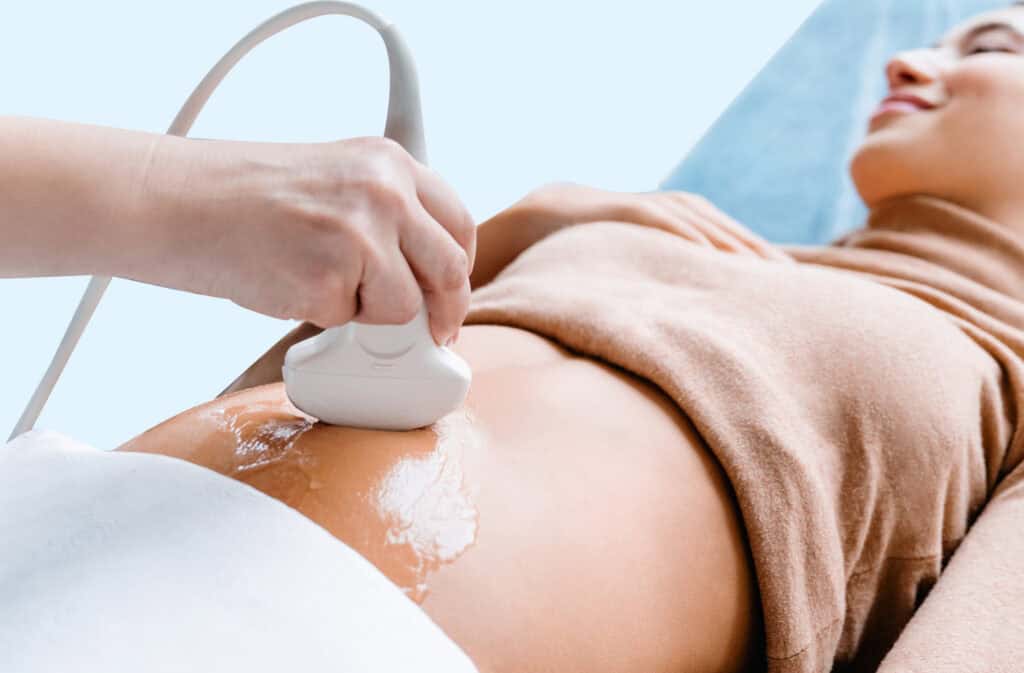Femia > Health Library > Your cycle > Sex > Understanding female libido: Signs of a high sex drive in women
Understanding female libido: Signs of a high sex drive in women

- Updated Feb 25, 2025
- Published
CRAFTED BY HUMAN
Crafted by human At Femia, we provide accurate and up-to-date information at every stage of your journey, from trying to conceive, pregnancy and postnatal support. All content is created by a real person based on in-depth research and own professional experience. Femia ensures that you will receive expert advice, strict accuracy and a personalized approach from our authors/medical experts. Learn more about our editorial policy.
FACT CHECKED
Fact checked At Femia Health, we maintain the highest standards of editorial excellence in delivering content focused on helping you conceive, guiding you through pregnancy, and supporting you postpartum. Explore our content review principles to learn how we ensure the accuracy and quality of our health and lifestyle tips for every stage of your journey.
Everyone’s sex drive is unique. There is no set “normal” level—having a higher interest in sex might mean that you’re on the higher end of the spectrum. Your sex drive will also likely fluctuate over time as things like hormones, age, lifestyle, mental health, and relationships can all impact it, and that’s totally natural.
What is a high sex drive in women?
Sex drive, or libido, refers to your desire to engage in sexual activity. There is no “normal” level of libido; each woman has her own unique sex drive, and it will likely fluctuate over her lifetime. Having a high (or low) sex drive is often completely natural, and usually nothing to worry about.
The human sex drive is often described as being a spectrum. It can vary from no interest in sexual activity at all to frequently thinking about and partaking in sexual activity. For some, a high sex drive might mean that they crave sex or intimacy frequently, while for others, it might simply be an increased interest in sex compared to what they have felt before.

Common signs of high sex drive in females
Stigma and societal norms mean that even in today’s world, it can still be difficult for women to openly discuss their sex drive. This leaves many women wondering if their sex drive is ”normal” or if they should be concerned.
Let’s start by making it clear that having a high sex drive is completely natural, and unless it’s negatively impacting your life, you have nothing to worry about.
But, if you’re wondering what a sex drive on the higher end of the spectrum could look like, here are a few signs that you might see:
- Frequent sexual thoughts or fantasies. One sign of a higher libido is regularly thinking about sex or fantasizing about sexual situations. You might find that sex is on your mind more often or daydreams are more vivid.
- Desire for frequent sexual activity. You might find yourself wanting to engage in sexual activity more frequently. This might be in the form of more physical intimacy with your partner or seeking out more sexual encounters with others.
- Increased sensitivity. Being more responsive to stimuli like touch or romantic scenes in movies can be another sign of a high sex drive. These moments might spark a stronger reaction than usual.
- Higher interest in experimenting. If you find yourself feeling more curious or sexually adventurous, this could be a sign of an increased libido. You might want to try new things in the bedroom, explore different forms of intimacy, or experiment sexually.
All of these signs are perfectly natural. As long as you’re feeling good about it, and it’s not interfering with your daily life or relationships, then embrace and enjoy this unique part of yourself.
If, however, you feel your sex drive is having an effect on your relationships, mental or physical health, or you’re just not happy about it, then it’s ok to want to talk to someone.
👉Find out more: Does period sex make you more attached? Exploring the emotional and spiritual aspects
What causes high sex drive in women
A woman’s sex drive is often influenced by a complex mix of biological, psychological, lifestyle, and social factors. To give you a better idea about why you might have a high sex drive, let’s take a closer look at these influences.
Hormonal influences
Hormonal changes, such as shifts in testosterone and estrogen, can have a big impact on your sex drive. For example, a study following 326 pre-menopausal women for four years found that fluctuations in testosterone over time can lead to a decrease in a woman’s libido. Another small study by the University of California focused on young women and revealed that libido increases around ovulation, when the egg is released. You may also notice changes in your sex drive during pregnancy—many women experience a dip in desire, especially in the later stages. These natural fluctuations are part of the body’s response to different life stages and hormonal shifts.
Psychological factors
Feeling stressed, anxious, or depressed can impact your libido. For some women, this can reduce their libido, while others might find sex and intimacy stress-busting and consequently crave more.
Relationship factors
It’s completely normal for your sex drive to go up and down during a relationship due to several factors. Things like how satisfied you are with your partner, how well you communicate, and how attracted you are to your other half can all influence your sex drive. Lots of couples have a higher sex drive at the beginning of their relationship.
Lifestyle and physical health
Your physical health may also influence your sex drive. An investigation into physical fitness and sexual behavior found that physically fit people had higher sexual arousal and more sexual experiences. Increased sexual arousal and a higher number of sexual experiences can be signs of a high sex drive.
Medical conditions and medications
Some medical conditions can cause your body to produce high levels of androgen hormones (like testosterone). One literature review, published in the International Journal of Women’s Health and Reproductive Sciences, found that an increase in androgen production can lead to an increase in libido.
Medications can also affect your sex drive. One common medication that women often link to their sex drive is the oral contraceptive pill (OCP). However, while this phenomenon is often self-reported, review of 36 studies published in the European Journal of Contraception and Reproductive Health Care found no link between the two.
👉Find out more: Vabbing: What it is and how it works

Is a high sex drive normal?
Absolutely! Sexual desire varies from person to person, and there is no right or wrong level of libido. If your high sex drive isn’t causing any issues in your daily life or relationships, then there’s nothing to worry about.
Society can sometimes create feelings of shame or stigma around sexuality, especially when it comes to women and high sex drives. But, every sex drive is unique and a personal part of who you are. Embrace what feels natural for you— but, if you have any concerns, then have a chat with your healthcare provider. They will be able to offer personalized, non-judgemental, and confidential advice.
How to maintain a high libido?
Sometimes, having a high sex drive can cause personal distress or relationship issues, especially if you and your partner have mismatched libidos. Here are a few practical tips to help you maintain your sex drive in a healthy and positive way:
1. Communicate with your partner
Open and honest communication about both of your wants and needs is crucial. This will help you to get on the same page and avoid misunderstandings and frustration.
2. Focus on emotional and physical well-being
Staying active, eating a balanced diet, and managing stress through activities like yoga and meditation can help you to take care of your mental health and live a balanced life. It can also provide a distraction during periods where your sexual needs can’t be met.
3. Explore different ways of intimacy
There are many different ways to maintain intimacy in a relationship, and it doesn’t always have to include sexual activity. Schedule date nights or just cuddle and chat on the sofa. This can nourish your connection, make your partner feel valued, and ease the pressure for frequent sex.
4. Set personal boundaries
If your libido is starting to cause stress in your relationships, then setting boundaries can help. Seek out other fulfilling activities to bring balance to your life and offer distractions away from sex.
When to see a sexologist?
It’s always okay to reach out to a sex therapist or healthcare provider if you have any concerns about your sexual health or just want to chat with someone impartial. Here are some signs that it might be a good time to talk to a professional about your high sex drive:
- Your libido has changed. Sudden or dramatic changes in your libido could indicate an underlying issue. A professional can help identify any underlying causes and offer advice.
- Your libido is causing you distress. If you’re feeling overwhelmed by a high sex drive and it’s affecting your daily life, mood, or relationships, then a sexologist can help you find balance and understand what’s going on.
- Struggles in your relationship. If sex is causing relationship tension, then reaching out to a professional either alone or together can help you to openly communicate with your partner and find a way forward for your relationship.
- Curiosity about sexuality. You might find that your desires and sexual interests change over time. Seeing a sexologist is a great way to gain insight and feel more empowered about your sexual health.
Opening up about your sex drive and sexual health can feel uncomfortable for some women. We’re here to reassure you that these are common health concerns, and your healthcare provider will be able to offer confidential and personalized advice or point you in the direction of an expert who can help you.
| An important note: |
|---|
| There is a medical condition called compulsive sexual behavior, or hypersexuality, where a person experiences an intense focus on sexual activities and fantasies that feel hard to control. This can cause distress and impact health, work, relationships, and daily life.
|
Questions from Femia community
Why do I have a high sex drive all of a sudden?
Experiencing a sudden increase in sex drive is often completely normal and can happen for a number of reasons. A change in hormones, mood, life circumstances, lifestyle, or the start of a new relationship can cause a sudden shift in your sex drive.
It’s usually nothing to worry about and is a natural response to what is happening in your life. But, if your high sex drive is making you feel overwhelmed or disrupting your life, then having a chat with a healthcare professional is a good idea.
Does age affect women’s sex drive?
Yes, libido can fluctuate due to many things, including age. The National Council on Aging (NCOA) notes that it’s common for both women and men to experience a drop in their sex drive as they get older. For women, this tends to begin in their late 40s to early 50s, and for men, in their 60s or 70s.
Can stress increase my sex drive?
Stress can affect your libido in different ways. Some women find that stress or anxiety heightens their sex drive, as they seek comfort and distraction, whereas others find it reduces it.
Your libido is unique to you and, unless it’s causing you distress or issues in your relationship or daily life, then there shouldn’t be anything to worry about.
The bottom line
Having a high sex drive as a woman is completely natural and likely far more common than you realize. Over time, your libido will fluctuate, as things like your hormones, health, lifestyle, stress levels and relationship can all cause your sex drive to go up and down.
Embracing this unique part of yourself is key, but if for some reason you’re distressed by a high sex drive, or feel that it is causing issues in your life or relationships, then reach out to a sexologist or your healthcare provider. They will be able to have a confidential and non-judgmental chat with you about your concerns and offer personalized support to help you bring your life back into balance.
References
- Awlaqi, Ahmed Al, et al. “Hormone Profile in Hypersexuality Women.” International Journal of Women’s Health and Reproduction Sciences, vol. 4, no. 2, Feb. 2016, pp. 52–58. https://doi.org/10.15296/ijwhr.2016.13.
- Birnbaum, Gurit E. “The Fragile Spell of Desire: A Functional Perspective on Changes in Sexual Desire Across Relationship Development.” Personality and Social Psychology Review, vol. 22, no. 2, June 2017, pp. 101–27. https://doi.org/10.1177/1088868317715350.
- “Compulsive Sexual Behavior – Symptoms and Causes.” Mayo Clinic, www.mayoclinic.org/diseases-conditions/compulsive-sexual-behavior/symptoms-causes/syc-20360434.
- Department of Health & Human Services. “Libido.” Better Health Channel, www.betterhealth.vic.gov.au/health/healthyliving/libido#.
- Erol, Bulent, et al. “A Cross-Sectional Study of Female Sexual Function and Dysfunction During Pregnancy.” The Journal of Sexual Medicine, vol. 4, no. 5, July 2007, pp. 1381–87. https://doi.org/10.1111/j.1743-6109.2007.00559.x.
- Gracia, Clarisa R., et al. “Predictors of Decreased Libido in Women During the Late Reproductive Years.” Menopause: The Journal of the North American Menopause Society, vol. 25, no. 11, Oct. 2018, pp. 1238–43. https://doi.org/10.1097/gme.0000000000001225.
- Jiann, Bang-Ping, et al. “Risk Factors for Individual Domains of Female Sexual Function.” The Journal of Sexual Medicine, vol. 6, no. 12, Dec. 2009, pp. 3364–75. https://doi.org/10.1111/j.1743-6109.2009.01494.x.
- Jiannine, Lia M. “An Investigation of the Relationship Between Physical Fitness, Self-Concept, and Sexual Functioning.” Journal of Education and Health Promotion, vol. 7, no. 1, Jan. 2018, p. 57. https://doi.org/10.4103/jehp.jehp_157_17.
- “Low Sex Drive in Women – Symptoms and Causes.” Mayo Clinic, www.mayoclinic.org/diseases-conditions/low-sex-drive-in-women/symptoms-causes/syc-20374554.
- “Loss of Libido | NHS Inform.” NHS Inform, 20 Jan. 2023, www.nhsinform.scot/illnesses-and-conditions/sexual-and-reproductive/loss-of-libido.
- Pastor, Zlatko, et al. “The Influence of Combined Oral Contraceptives on Female Sexual Desire: A Systematic Review.” The European Journal of Contraception & Reproductive Health Care, vol. 18, no. 1, Jan. 2013, pp. 27–43. https://doi.org/10.3109/13625187.2012.728643.
- Roney, James R., et al. “Hormonal Predictors of Sexual Motivation in Natural Menstrual Cycles.” Hormones and Behavior, 2013, labs.psych.ucsb.edu/roney/james/roneysimmons.published.pdf.
- “Why Do I Have Low Sex Drive?” National Council on Aging, 17 Apr. 2024, www.ncoa.org/article/why-do-older-adults-lose-their-libido.
- Younis, Ihab, et al. “What Do Women Want: Factors Affecting Female Libido.” Human Andrology, vol. 7, no. 1, Mar. 2017, pp. 15–23. https://doi.org/10.21608/ha.2017.3555.

Learn about the follicular phase, its symptoms, and how to optimize your diet for better health. Discover key foods, hormonal changes, and tips for improved fertility and wellness.

Explore choline supplement pregnancy options and learn why choline is important during pregnancy. Boost your baby’s brain development with expert nutrition advice.

Learn about first-trimester screening tests, including how they’re performed, what they screen for, and what the results can indicate. Understand the process and what to expect during early pregnancy.

